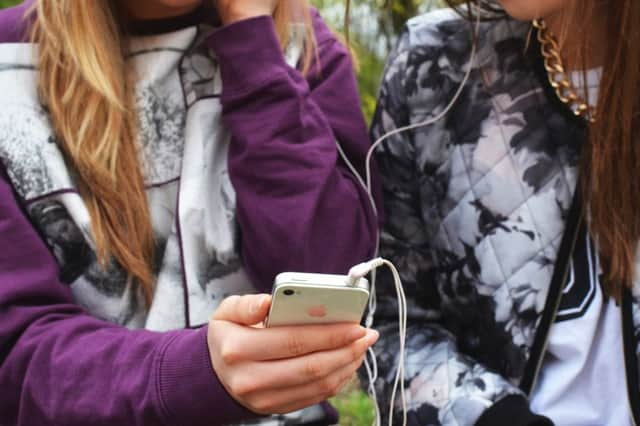In numbers: Young Scots’ declining mental health


Bullying, the 24/7 online environment, sexual pressure and issues around body image, school stress and family breakdown are just a few of the reasons more young people are seeking mental health support.
The number of those being referred to Child and Adolescent Mental Health Services (CAMHS) has increased by 32 per cent over the last two years. A report released by the child and adolescent health research unit last week found that there have been “concerning” changes in the mental health of teenage girls in Scotland.
Advertisement
Hide AdAdvertisement
Hide AdScotland’s girls are not alone in their struggle. According to the findings by the Mental Welfare Commission, 207 admissions of under-18s to non-specialist units such as adult psychiatric and paediatric wards were recorded in 2014/15, an increase from 202 the previous year.
As half of all diagnosable mental health conditions start before the age of 14, and 75 per cent by the age of 21, early intervention is crucial for the mental health of Scotland’s young people.
SCSC expects that the number of those in need will increase along with societal pressures and increasing demand for services.
“Only 0.45 per cent of NHS Scotland expenditure is spent on CAMHS, amounting to 5.56 per cent of the total mental health budget. This is a paltry amount to deal with the ‘ticking timebomb’ of increasing demand and what is clearly required is greater resourcing” Alex Orr, policy advisor at SCSC states.
“Staffing levels have not kept pace with demand, a number of health boards are failing to meet their targets for CAMHS treatment and we are also witnessing an increased number of those children and young people being sent to non-specialist adult and paediatric wards for treatment.”
Further research is required to determine exactly why mental health problems are increasing but many contributing factors have already become evident to those supporting people in need. These include increasing stress on girls and young women, ranging from academic pressure to their increasing sexualisation and objectification, amplified by social media, with the drive to achieve unrealistic body images which can lead to issues such as anorexia and self-harm.
The Scottish Government have made steps to further expand their services through a £1 million investment from the £15 million Mental Health Innovation Fund. The money will deliver a three year NHS Education for Scotland programme to further support the mental health workforce.
Existing child and adolescent mental health services staff will receive further training in areas identified by NHS health boards as priorities for the children and young people they see. It will allow more specialised supervisors of front-line staff to support the delivery of cognitive behavioural therapy, interpersonal psychotherapy, systemic family therapy and specialised interventions for young people.
Advertisement
Hide AdAdvertisement
Hide AdSpeaking on the announcement of the investment, Minister for Sport, Health Improvement and Mental Health, Jamie Hepburn, said: “Waiting times for mental health treatments have come down significantly in recent years, despite a large increase in demand. However, having become the first country in the UK to set waiting times targets in this area, we are absolutely determined to maintain that improvement and reach the targets we have set.”
Scottish mental health charities are already adapting to the changes. YoungMinds offers a free help line for parents, which provides support for those who are worried about the behaviour and mental health of a child or young person and a website dedicated to mental health medication.
Sarah Brennan, chief executive of YoungMinds said: “Giving young people the tools to build their resilience is key to helping them navigate the complex world they are growing up in. Parents and carers must also be given information to help children as they journey through the emotional turmoil that goes with becoming a young adult, and spotting the signs if they are struggling.”